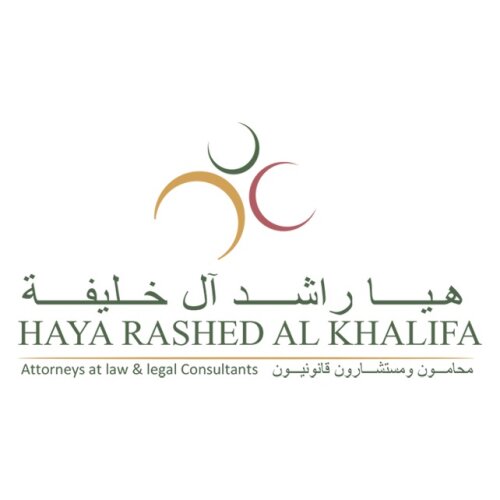Best Trusts Lawyers in Bahrain
Share your needs with us, get contacted by law firms.
Free. Takes 2 min.
Or refine your search by selecting a city:
List of the best lawyers in Bahrain
About Trusts Law in Bahrain
Trusts in Bahrain are governed by a legal framework that has been developing to accommodate the growing needs of individuals and businesses seeking to manage and protect their assets both domestically and internationally. The Bahraini Trust Law provides a robust structure for the creation, management, and dissolution of trusts, making it a favorable option for asset protection, wealth management, and estate planning. Trusts are controlled by the Central Bank of Bahrain (CBB), and the legislation aligns with international standards, ensuring legal clarity and judicial protection for both local and foreign entities.
Why You May Need a Lawyer
There are numerous situations where individuals and businesses might require legal assistance in trust matters in Bahrain. Some of the common reasons include:
- Establishing a trust to manage and allocate assets or investments.
- Navigating the complexities of estate planning, particularly for expatriates with assets in multiple jurisdictions.
- Resolving disputes related to trusts, such as disagreements between beneficiaries and trustees.
- Ensuring compliance with regulatory frameworks and changes in the law.
- Seeking to modify or dissolve existing trust agreements.
Local Laws Overview
The Bahrain Trust Law, issued under Law No. 23 of 2006, outlines the regulation and operation of trusts. Key aspects include:
- Types of Trusts: The law recognizes various forms including charitable, special purpose, and family trusts.
- Trustees: Must be licensed by the CBB and are responsible for administering the trust in accordance with its terms.
- Beneficiaries: The rights of beneficiaries are clearly defined, including their entitlement to information and distributions according to the trust deed.
- Assets: Trusts can hold a wide range of assets, and the law facilitates the transfer and management of these assets within the trust structure.
- Confidentiality: The law ensures a high degree of confidentiality for trust arrangements, safeguarding the privacy of involved parties.
Frequently Asked Questions
What is the purpose of a trust?
The primary purpose of a trust is to manage and protect assets. It can ensure efficient distribution to beneficiaries, minimize estate taxes, and provide privacy.
Who can establish a trust in Bahrain?
Both residents and non-residents can establish trusts in Bahrain, provided they comply with the legal requirements and regulations stipulated by the CBB.
What role does the Central Bank of Bahrain play in trusts?
The CBB is the regulatory body responsible for licensing trustees and ensuring compliance with the Trust Law, including periodic reporting and audits.
Can a trust in Bahrain hold assets located in other countries?
Yes, trusts in Bahrain can hold assets internationally. This makes Bahraini trusts a flexible tool for global asset management and estate planning.
Are Bahraini trusts publicly registered?
No, trusts in Bahrain are not required to be publicly registered, providing a high degree of privacy for the settlors and beneficiaries.
What happens if a trustee breaches their duty?
If a trustee violates their fiduciary duty, they can be held legally accountable, which may involve restitution and even removal from their position.
Is it possible to modify the terms of a trust?
Generally, the terms set at the trust's creation are binding. However, modifications can be made under specific conditions, often requiring court approval.
How are trusts taxed in Bahrain?
The specifics of taxation can vary, but generally, any income generated within the trust may be subject to taxation. Consultation with a tax advisor is advised.
Can trusts be used for charitable purposes?
Yes, Bahraini law supports the creation of charitable trusts, which can be used to manage assets dedicated to philanthropic causes.
How can someone dissolve a trust?
Dissolving a trust in Bahrain typically requires fulfilling the trust's conditions for termination or obtaining a court order if early termination is needed.
Additional Resources
For more information on trusts, the following resources and organizations may be of help:
- Central Bank of Bahrain: The regulatory authority for trusts.
- Local law firms specializing in Trust and Estate Law.
- Expat community groups might offer insights for multi-jurisdictional estate planning.
Next Steps
If you need legal assistance concerning trusts in Bahrain, consider the following steps:
- Consult with a lawyer who specializes in Bahraini Trust Law and estate planning.
- Prepare all necessary documents related to your assets and intended trust arrangements.
- Discuss both immediate and long-term objectives with your legal advisor.
- Ensure compliance with all regulatory requirements as advised by your lawyer.
By taking these steps, you can effectively establish, manage, or resolve issues related to trusts in Bahrain.
Lawzana helps you find the best lawyers and law firms in Bahrain through a curated and pre-screened list of qualified legal professionals. Our platform offers rankings and detailed profiles of attorneys and law firms, allowing you to compare based on practice areas, including Trusts, experience, and client feedback.
Each profile includes a description of the firm's areas of practice, client reviews, team members and partners, year of establishment, spoken languages, office locations, contact information, social media presence, and any published articles or resources. Most firms on our platform speak English and are experienced in both local and international legal matters.
Get a quote from top-rated law firms in Bahrain — quickly, securely, and without unnecessary hassle.
Disclaimer:
The information provided on this page is for general informational purposes only and does not constitute legal advice. While we strive to ensure the accuracy and relevance of the content, legal information may change over time, and interpretations of the law can vary. You should always consult with a qualified legal professional for advice specific to your situation.
We disclaim all liability for actions taken or not taken based on the content of this page. If you believe any information is incorrect or outdated, please contact us, and we will review and update it where appropriate.
Browse trusts law firms by city in Bahrain
Refine your search by selecting a city.









